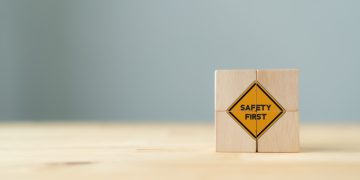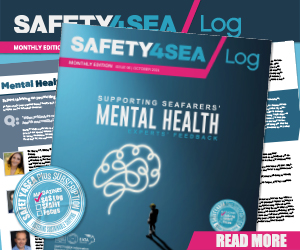In recent years, the development of the international maritime industry has faced unprecedented challenges, which have added greater pressure and uncertainty to the already heavy-pressured international shipping market and the growth of the sector, CCS President Mo Jianhui gave an interview to Cui Liande, China Ship Survey Press, explaining why building new industrial partnerships and realizing industrial transformation & high-quality development has become an urgent issue for all players in the shipping industry chain.
Q: What are the specific contents of building new industrial partnerships?
Mo Jianhui: I believe that to build a new type of industrial partnership for shipping, we can start with building a development community, a technology community, and a quality community, and promote the construction of a community of shared future for the industry.
A development community means that all stakeholders aim for common growth, and regard each cooperation and each contract as a project community in the form of business symbiosis, ecology co-construction, and benefit sharing, creating bigger value and achieving win-win or multi-win through efficient and joint collaboration. A technology community is actually an integral part of the development community, although it also has specific connotations. As we all know, technological innovation is the first driving force leading the healthy and sustainable development of the industry. However, it is also a notably arduous and risky task with extremely high uncertainty and complexity, which requires the coordination of all parties in the industry chain to the greatest extent. With technological innovation as the link and with openness, cooperation, innovation, and sharing as the common value pursuit, all innovation entities explore the establishment of a long-term cooperation mechanism, and facilitate technological innovation to lead the high-quality development of the industry.
A quality community is the extension and expansion of the maritime safety chain concept, of which China Classification Society is an active supporter and firm promoter. When implementing the concept, we deeply realized that quality is not only a precondition for safety, but also a fundamental guarantee for environmental protection and intelligent development. The high-quality construction and safe and eco-friendly operation of a ship requires concerted efforts involving all links of ship design, plan approval, product certification, construction, survey, operation and management, as well as effective connection of the quality, safety and green goals from the perspective of the full life cycle, so as to promote the safe, green and sustainable development of the international shipping industry chain.
Q: What should players in the shipping industry chain do to promote building new industrial partnerships?
Mo Jianhui: The idea of three communities is a new perspective for thinking about the industry’s future development. It is a community of shared future, composed of stakeholders in the international shipping industry chain, transcending the boundaries of enterprises, industries, and countries. All parties should work together and foster the notion of “If I am good, we will be good; if we are good, I will be better”, starting from the present and the foundation.
Firstly, facilitate the establishment of a credit system to provide system guarantees for the construction of the community. When all parties involved in the project can, based on a high level of mutual trust, truly lower their guard against each other and accept their differences, they can arrange the project and optimize its value from a “holistic” perspective, and therefore push the overall value of the project to a new level so that the maximization of benefits pursued by all parties is no longer far away.
Secondly, vigorously promote professional spirit. All players in the industry chain must pursue professionalism, create value and be an indispensable part of the community, and deepen their own areas of strength, refine and strengthen their professional advantages. Meanwhile, they should extend their advantages in all aspects, providing professional support to partners through professional advantages.
Thirdly, establish the concept of openness and sharing. The improvement of individual’s technological innovation capacity requires not only an increased number of factors such as R&D funds and investment in talents, but more importantly, a full, open, and continuous interaction between the innovation elements, the system and the environment. Building an innovative ecosystem of open cooperation and sharing is undoubtedly of great significance to the construction of the community.
Fourthly, actively explore and innovate cooperation mechanisms. There are many pathways of building a community with a shared future for the industry. During the exploration, industry-leading companies and institutions should play an outstanding role with wide and huge influence, strong cohesion, and demonstration effects, and venture to innovate cooperation patterns, launch demonstration projects, conduct useful explorations for the construction of the three communities, and push the industry’s community of shared future to move forward in the correct direction.
Q: In advancing the construction of new industrial partnerships, what work has the relevant parties in the shipping industry done?
Mo Jianhui: From the perspective of China Classification Society, in recent years we have mainly carried out work around the following aspects.
1. Give full play to the advantages of extensive connections between classification societies and various links in the shipping industry chain, and make full use of international maritime platforms to advocate and spread the concept of a community of shared future for the shipping industry.
2. Leverage the advantages of CCS in international service network and technical standards development, and the mutual understanding and cooperation between CCS and shipowners, financers, insurers and other stakeholders.
3. Build technical cooperation platform in the shipping industry through CCS’s Technical Committee, build cooperation and exchange platforms for regional industrial chain development through its various regional committees, build safety and quality communication platforms through the China Oil Transport Safety Forum, and actively explore the way to shipping industry’s community of shared future through these platforms.
4. Actively support and cooperate with relevant parties to promote the establishment of a tripartite meeting mechanism for shipowners, shipyards and classification societies, and build a tripartite dialogue platform, which can effectively accelerate the formation of a safety and quality responsibility chain.
5. Continuously innovate the industry’s joint R&D model, build a cooperative R&D platform, make more efforts in joint R&D projects with relevant parties in the industry chain, and build a bridge for the innovation, transformation and application of maritime technologies.
The views presented hereabove are only those of the author and not necessarily those of SAFETY4SEA and are for information sharing and discussion purposes only.

 Mo Jianhui is the President of China Classification Society
Mo Jianhui is the President of China Classification Society

































































